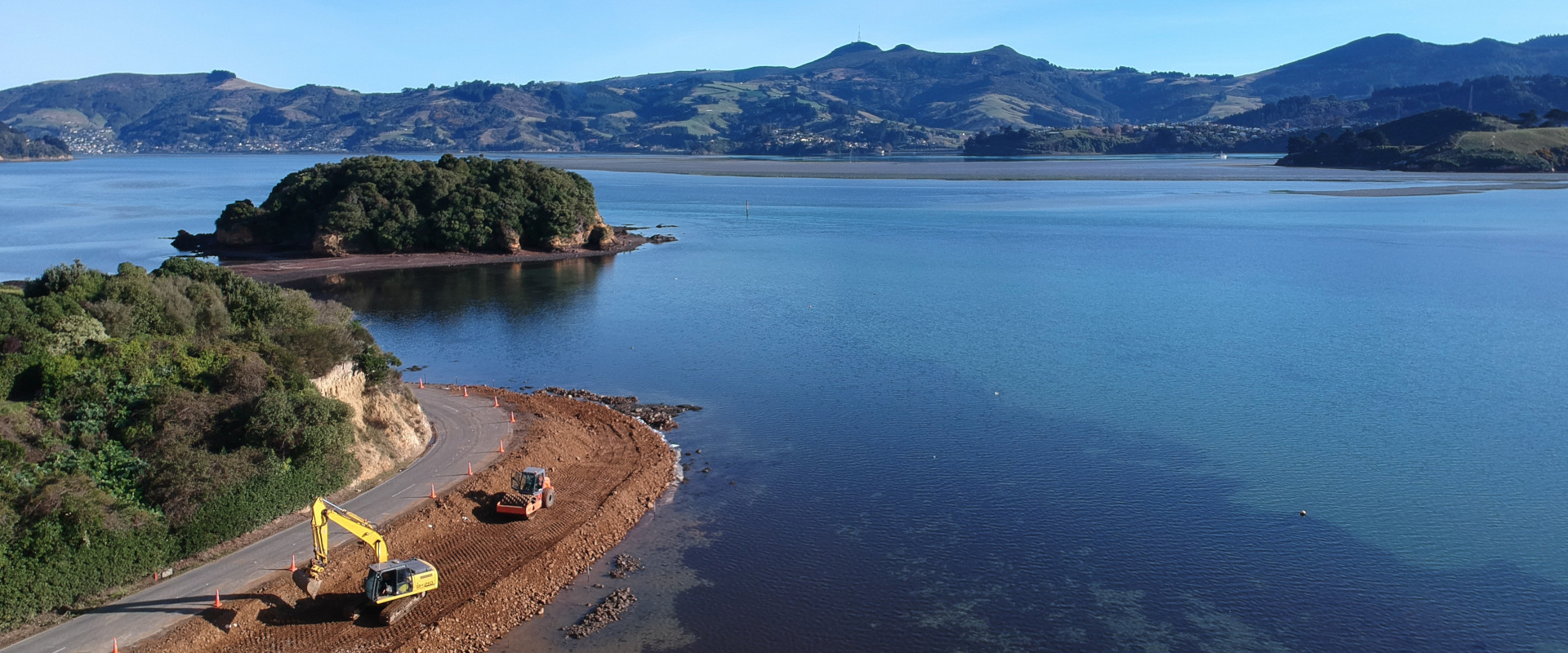A project in 16 parts
GHD was awarded the design contract for this project and the ‘engineer to the contract’ role. The project began in 2016, with construction starting in November 2018 and the final sections due to be completed by December 2022.
The road is being widened and raised with more shoulder space, crash barriers installed at high-risk sites, and improved delineation. A new rock seawall is also being built, along with a 3m wide shared path for pedestrians and cyclists that is being constructed in 16 phased sections - spanning a total length of 15km. The project also includes the addition and improvement of facilities to make the road more accessible to the community.
Stringent resource conditions, budget constraints and community feedback challenged the project team to innovate collaboratively in the planning, design, and delivery of this project. Throughout the project, GHD collaborated closely with Dunedin City Council to ensure alignment on project outcomes. An innovative, value-engineering approach between GHD, contractors and Dunedin City Council achieved $18 million in savings.
Enabling more active communities
This $70 million project has facilitated safer road use for over 5,000 residents living along the Peninsula, the wider Dunedin community and visitors to the city. The wider road shoulders and a separated shared path will reduce the number of accidents and near misses in the future.
The raising of the road and seawall construction will increase the resilience of this narrow road, mitigating the effects of sea level rise. The construction of over 40,000m2 of hand-placed stone sea wall also provided jobs to locals and recent refugees who had arrived from Syria.
Seating, landscaping, boardwalks and stairways have also made the space more welcoming and accessible for the community. Use of the completed sections has increased dramatically, with people cycling to the city as their daily commute and running, walking, or cycling for recreation and fitness. The project has highlighted how easily the community will adopt active modes when safe, alternative transport options are provided.

